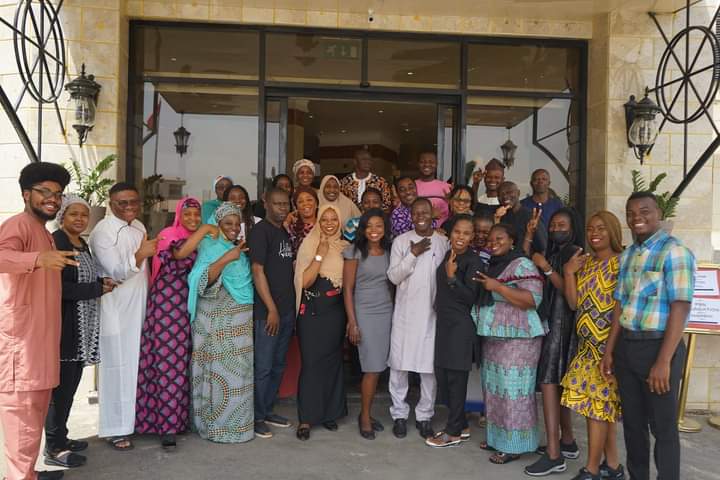By Ramat Ayo Ismail
Media Practitioners in Nigeria have been urged to prioritise the uptake of Modern Contraceptive Method in their reportage, so as to reduce maternal mortality rates in the country.
The Country Director, Pathfinder International, Dr Aminat Dorayi made the call during a 3-day capacity building organised for Media Executives in Abuja.
She explained that family planning uptake in Nigeria has remained low and this was as a result of the various challenges and barriers faced by women due to religious, socio cultural challenges.
Dorayi noted that reproductive health services were essential to the overall wellbeing of children and families, and not just women and girls.
According to her, there is need for men involvement in family planning, saying that the more men support the programme, the higher the achievement
She urged Media for effective coverage of family planning activities in order to allay fear of people in the country.
Also speaking, Dr Sekina Bello , Pathfinder program Advisor, stated that the training became necessary to ensure that Media is updated on the importance of Advance Family Planning.
She urged participants to put in their best to increase visibility through family planning champions.
Making a presentation on Smart Advocacy, the Pathfinder International Programme Officer, Hauwa Usman explained that participants needs to adapt advocacy strategy that would help decision makers see their values reflected.
She urged all participants to key into attaining objectives of Advanced Family Planning in Nigeria.
Making her presentation on media engagement, one of the facilitator, Hajia Biliqees Modupe Oladimeji explained that Media plays a significant role in influencing society’s way of thinking about various issues, including Family planning.
She added that Media perform a strategy role in information dissemination in any given society in which they determine what get across to public.
According to her, Media can influence policy makers on issues related to maternal and child health and family planning/Representatives Health among others.
Also, In his presentation on Family Planning situation in Nigeria, a developmental expert Chima Azubuike, attributed inadequate funding for essential commodities and supply as a major factors affecting family planning services in the country.
He explained that Nigeria has a low modern contraceptive prevalence rate (mCPR) of 13%, which is below the sub-Saharan average of 24%.
“Currently, of the estimated million 42 women of reproductive age, only 14% use a modern contraceptive. Whereas about 10.6 million women who have a need for FP but do not have access to modern contraceptives,” he added.
He added that there is limited provision of FP services across public and private facilities due to inherent health systems challenges.
According to him, in 2017, the Nigerian Government, through the Federal Ministry of Health committed to set aside US$4 million (NGN1.2 billion) annually from 2017-2020 to fund the FP programmes in Nigeria.
But reverse is the case, because only NGN300 million of the agreed sum was awarded and released in 2019.
Currently, the Government is yet to release the 2020 family planning budget constituting N1.2 billion which affect the effectiveness of the services in Nigeria
He noted that the constant delay and inconsistency in funds discharged has created a gap of N2.1 billion in the services delivery of family planning.
Azubuike however enjoined government to ensure adequate funding and as well prompt release of family planning budget, in order to make Family Planning services available and accessible to women of age.
